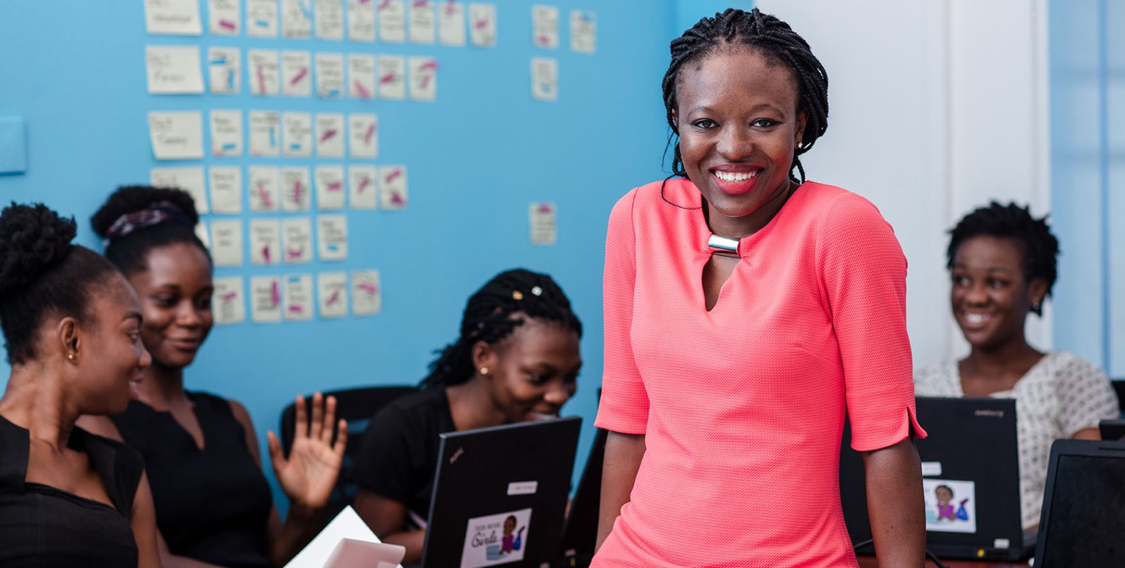
Bridging the Gender Digital Divide in Africa
With young people and technology at the heart of our work, we have observed firsthand how access to information and communications technologies (ICTs) can empower young women to drive change in their lives and communities. Here are five exceptional young women who are innovators and leaders in bridging the gender digital divide.
Young women leaders changing the narrative of girls in ICT in Africa
As a young woman working in tech, Regina Honu, the CEO of Soronko Solutions has faced all sorts of challenges including stereotyping, sexism, and discrimination. Despite this, she has found opportunities in the STEM space to make her dreams come true. “I am using technology to leave a legacy and empower women and girls to reach their full potential,” said Regina. Running Soronko Academy, the first coding and human-centred design school in West Africa, she has found a way to scale impact with the “Tech Needs Girls” program which has trained over 3,500 girls in Ghana and Burkina Faso.
Colette Nyinawumuntu, Research and Gender Officer at Digital Opportunity Trust champions gender equality in Rwanda. She has trained hundreds of youth and women in digital, entrepreneurship and other critical skills to help them create economic and social opportunities that will enable them to transform communities. “Engaging with, and listening to women, and designing skills programs that address their expressed needs, will go far in bridging the digital divide,” said Colette.
Aongola Musowafu, a third-year nursing student with ChildFund in Zambia, has learned basic ICT skills through ChildFund’s e-learning program. These skills have made it easier for her and other students to get and share the medical information needed for training. Armed with these in-demand skills, Aongola offers ICT services to people in her community and earns some income while she studies. “ICT in Zambia has generally been a skill largely practiced by men or boys, and so we are here to bridge that gap,” said Aongola. “I believe that there is no chance, no distance, or fate that can keep one away from achieving their set goals.”
Kawira Thambu, Learning Designer at Arifu in Kenya, believes that providing two-way, interactive SMS to learners across the agricultural, business and financial sectors is key to helping more learners access a quality education. “This is important to me because I believe that providing quality education to all is the great equalizer,” said Kawira. “Quality education gives individuals an equal chance and choice to access opportunities that would otherwise be limited.”
Peris Bosire, Co-founder of FarmDrive, grew up in a remote smallholder farming community in Kenya, experiencing first-hand the daily struggles of farmers. When she graduated from university at 22 she, and fellow graduate and former “farm girl” Rita Kimani, founded FarmDrive. Using their computer sciences skills, FarmDrive bridges the gap between financial institutions and smallholder farmers. “Our solutions use simple mobile phones, machine learning and data analytics to enable financial institutions to approve loans for underserved smallholder farmers, resulting in increased productivity,’’ said Peris. “We are using technology to drive capital to the people that need it most.”


